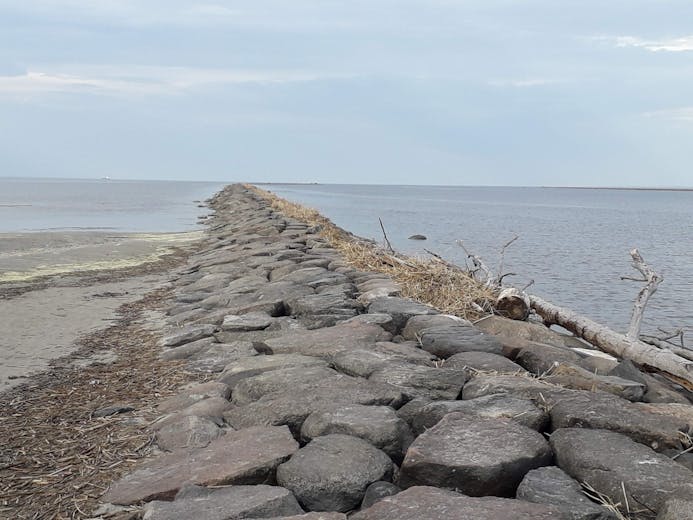Travel Smarter, Journey Better.
Unlock smoother, safer, and more enjoyable adventures with these practical tips for planning and executing your next trip, whether near or far.
Get Trip Ready A little preparation goes a long way in transforming a good trip into a great one. Using smart travel tips helps you anticipate potential issues and make informed choices before you even leave home.
Effective planning can save you significant time and money, reduce travel-related stress, enhance your safety, and allow you to immerse yourself more deeply in your destination.
From booking strategies to packing hacks and navigating new environments, leveraging expert advice ensures you're well-equipped for a memorable and hassle-free journey.

Booking Flights & Accommodation
Be flexible with your dates and consider flying during the off-peak season or shoulder seasons for better deals. Use flight comparison sites and set price alerts. Research accommodation locations for safety and convenience.

Packing Smart & Light
Make a list and stick to it. Choose versatile clothing items in neutral colors that can be layered and mixed-and-matched. Roll clothes instead of folding to save space. Limit shoes and use travel-size toiletries.

Budgeting Your Adventure
Set a realistic overall budget and break it down by category (flights, lodging, food, activities). Track your expenses as you go. Save money by eating like a local, utilizing free attractions, and looking for discounts.

Navigating Your Destination
Download offline maps and translation apps before you go. Learn a few basic phrases in the local language. Research public transportation options and familiarize yourself with the general layout of the area.

Staying Safe & Healthy Abroad
Share your itinerary with someone back home. Keep digital and physical copies of important documents separate. Be aware of your surroundings and local scams. Get necessary travel insurance and vaccinations.

Embracing Local Culture Respectfully
Research local customs, traditions, and basic etiquette before you arrive. Dress appropriately, especially when visiting religious sites. Be open to trying local foods and interacting politely with residents.

Creating Unforgettable Journeys
Smart travel isn't just about efficiency; it's about enhancing the experience. Good planning and savvy tips free up mental energy and resources, allowing you to focus on discovery, connection, and creating lasting memories.
Go beyond just seeing places – truly experience them through thoughtful preparation.
Leverage these digital tools and platforms to streamline your travel planning and execution.
Flight Comparison Sites
- Skyscanner, Google Flights, Kayak
- Compare prices across airlines
- Set fare alerts for deals
- Explore flexible date options
- Check budget airline inclusions
Accommodation Platforms
- Booking.com, Hostelworld, Airbnb
- Wide range of lodging types
- Read recent user reviews
- Check location maps carefully
- Compare cancellation policies
Travel Review Sites
- Tripadvisor, Yelp, Google Reviews
- Get insights on attractions, restaurants
- Read diverse opinions
- Look for recent reviews
- Identify potential tourist traps
Currency Exchange Apps
- XE Currency, Wise App
- Check real-time exchange rates
- Calculate costs in home currency
- Avoid poor airport exchange rates
- Understand mid-market rates
Translation Apps
- Google Translate, Microsoft Translator
- Translate text, speech, images
- Download languages for offline use
- Help with basic communication
- Useful for menus, signs, directions
Offline Map Apps
- Google Maps (offline areas), Maps.me
- Navigate without using mobile data
- Download maps by region/city
- Essential for areas with poor signal
- Pin key locations beforehand

Even with perfect planning, things can go wrong during travel. Cultivate flexibility, stay calm during delays or cancellations, have backup copies of documents, ensure you have travel insurance, and know how to contact local emergency services.
Cost Savings
Find better deals on flights, lodging, and activities through research and timing.
Stress Reduction
Good planning minimizes last-minute scrambles and travel-day anxiety.
Enhanced Safety
Being aware of risks and having backup plans improves personal security.
Deeper Cultural Immersion
Understanding customs allows for more respectful and meaningful interactions.
Smoother Logistics
Knowing transport options and having maps makes getting around easier.
More Enjoyment
Less time worrying about logistics means more time enjoying the destination.
Efficient Packing
Avoid carrying unnecessary weight and easily find what you need.
Better Planning
Make the most of limited time by prioritizing sights and activities.
Increased Confidence
Feeling prepared boosts confidence, especially for solo or first-time travelers.
Avoiding Scams
Research helps identify common tourist traps and potential scams.
Healthier Trips
Knowing vaccination needs and local health advice prevents illness.
Sustainable Choices
Informed decisions can lead to more environmentally and culturally responsible travel.
When is the best time to book flights?
Generally, booking flights 2-3 months in advance for domestic travel and 3-6 months for international travel yields good prices, but always set price alerts and be flexible if possible.
What's the secret to packing light?
Choose versatile clothing items you can mix and match, wear your heaviest items on the plane, use packing cubes, roll clothes, and decant toiletries into travel-size containers. Only pack essentials.
How can I travel on a tight budget?
Travel during the off-season, stay in hostels or budget guesthouses, eat like locals (street food, markets), utilize free walking tours and attractions, and use public transport.
Any safety tips for solo travelers?
Share your itinerary, stay aware of surroundings (especially at night), trust your instincts, keep valuables secure, avoid appearing lost, and choose well-reviewed accommodations in safe areas.
How do I deal with jet lag?
Adjust your sleep schedule gradually before leaving, stay hydrated on the flight, avoid excessive caffeine/alcohol, get sunlight upon arrival, and try to adapt to the local time immediately.
Is travel insurance really necessary?
Highly recommended. It covers unexpected events like medical emergencies (which can be extremely expensive abroad), trip cancellations/interruptions, lost luggage, and other potential mishaps.
How can I stay connected while traveling?
Consider purchasing a local SIM card upon arrival, using an international eSIM service, relying on Wi-Fi (use VPN on public networks), or checking international roaming plans with your home carrier.
